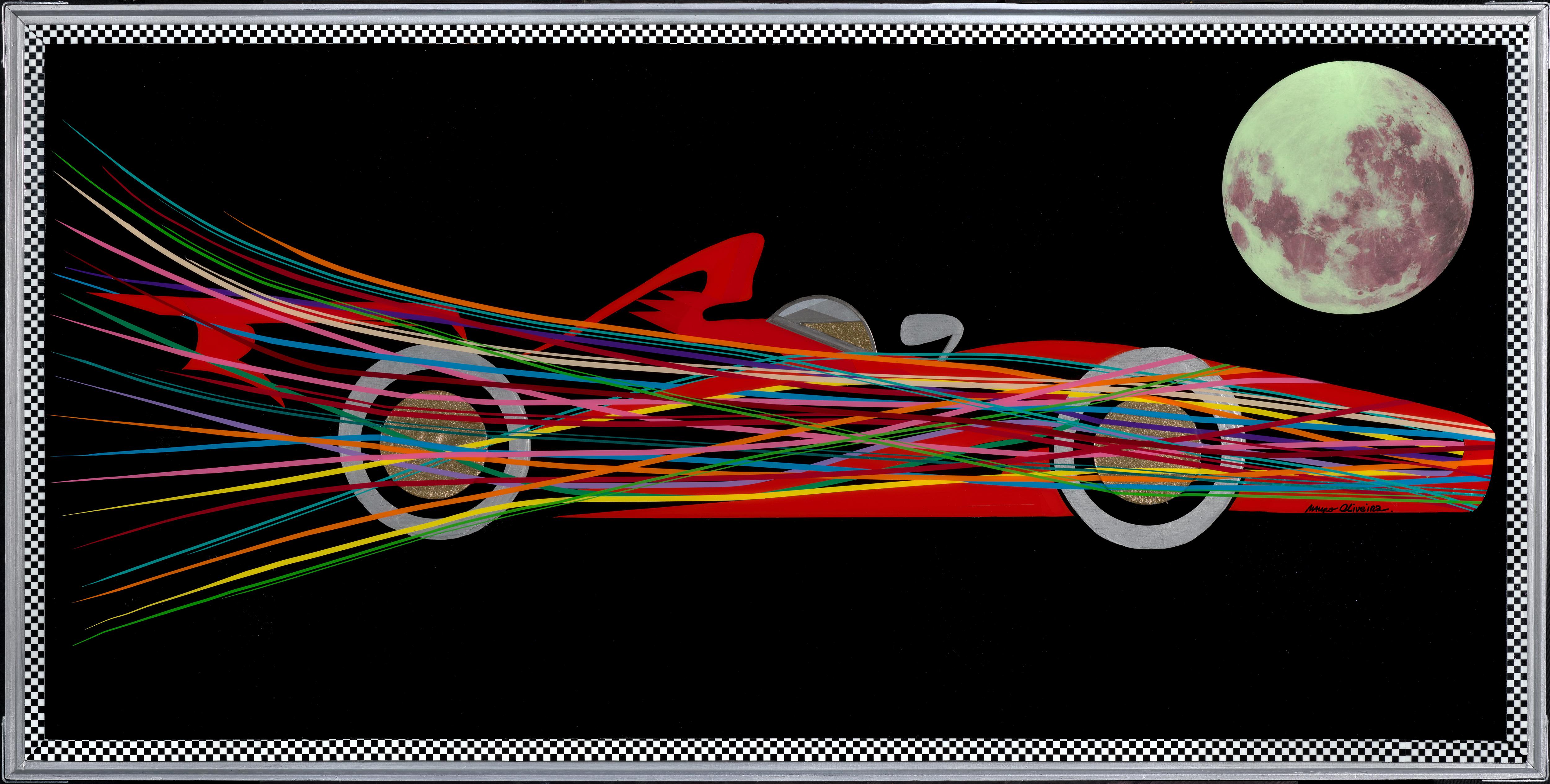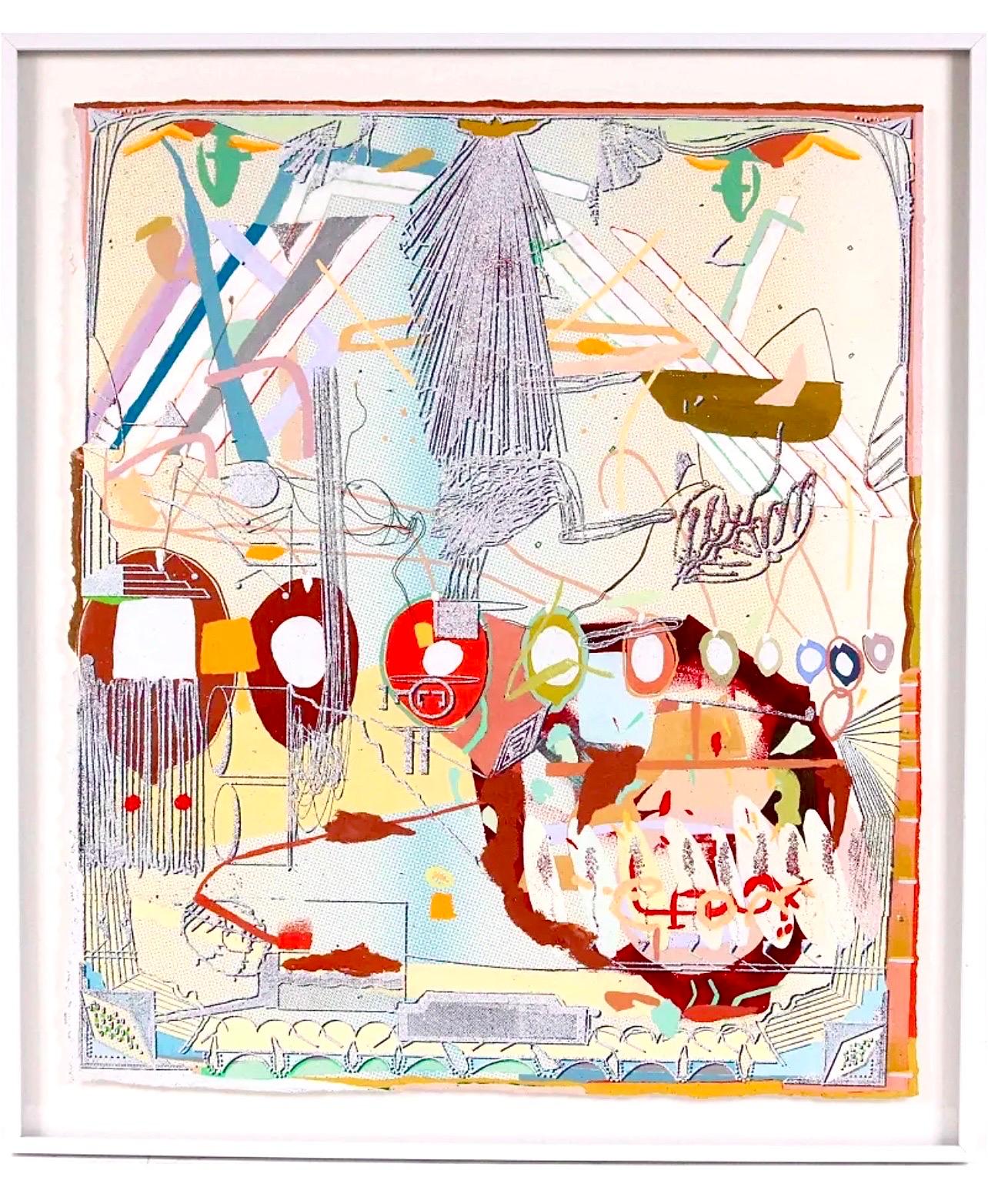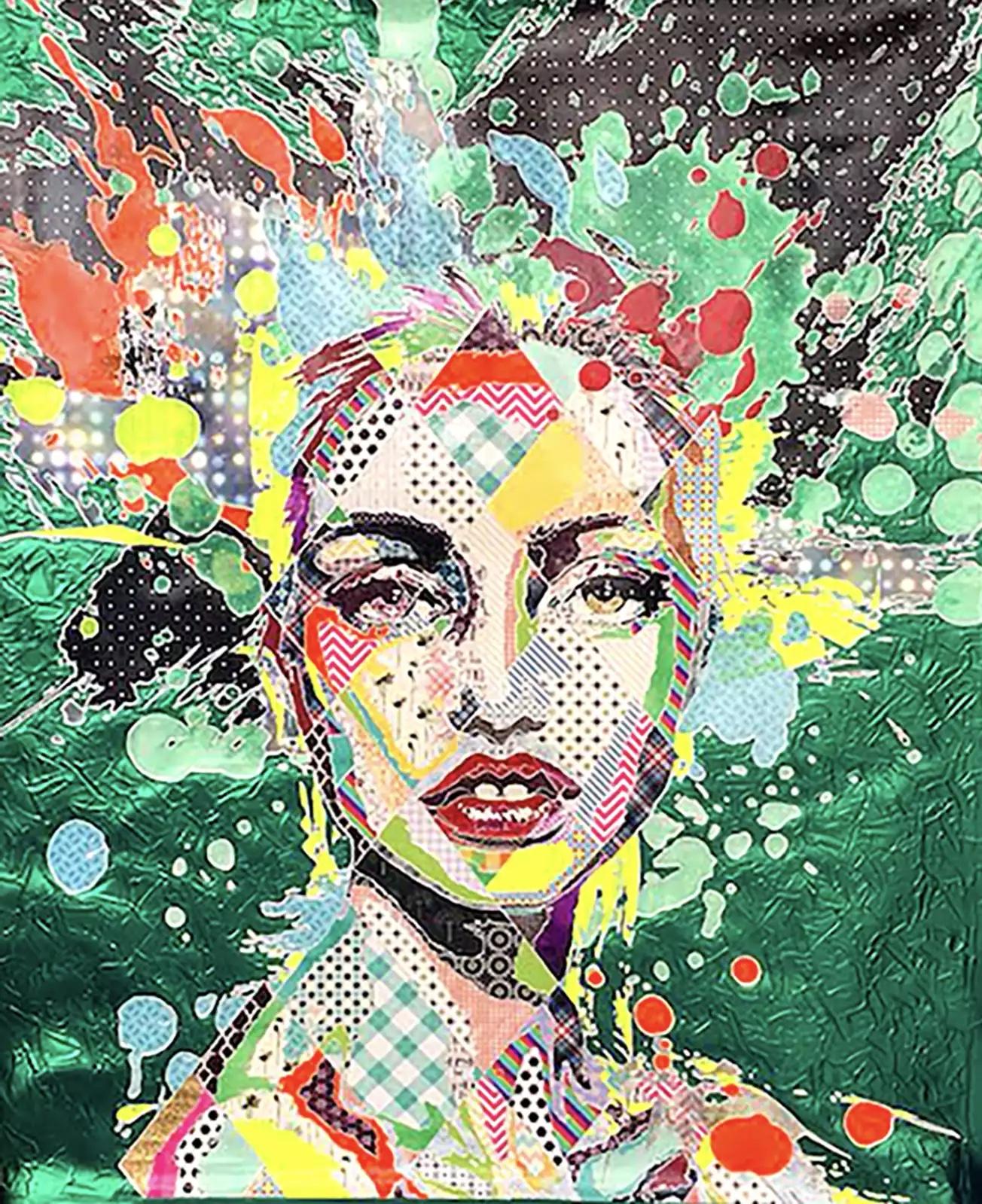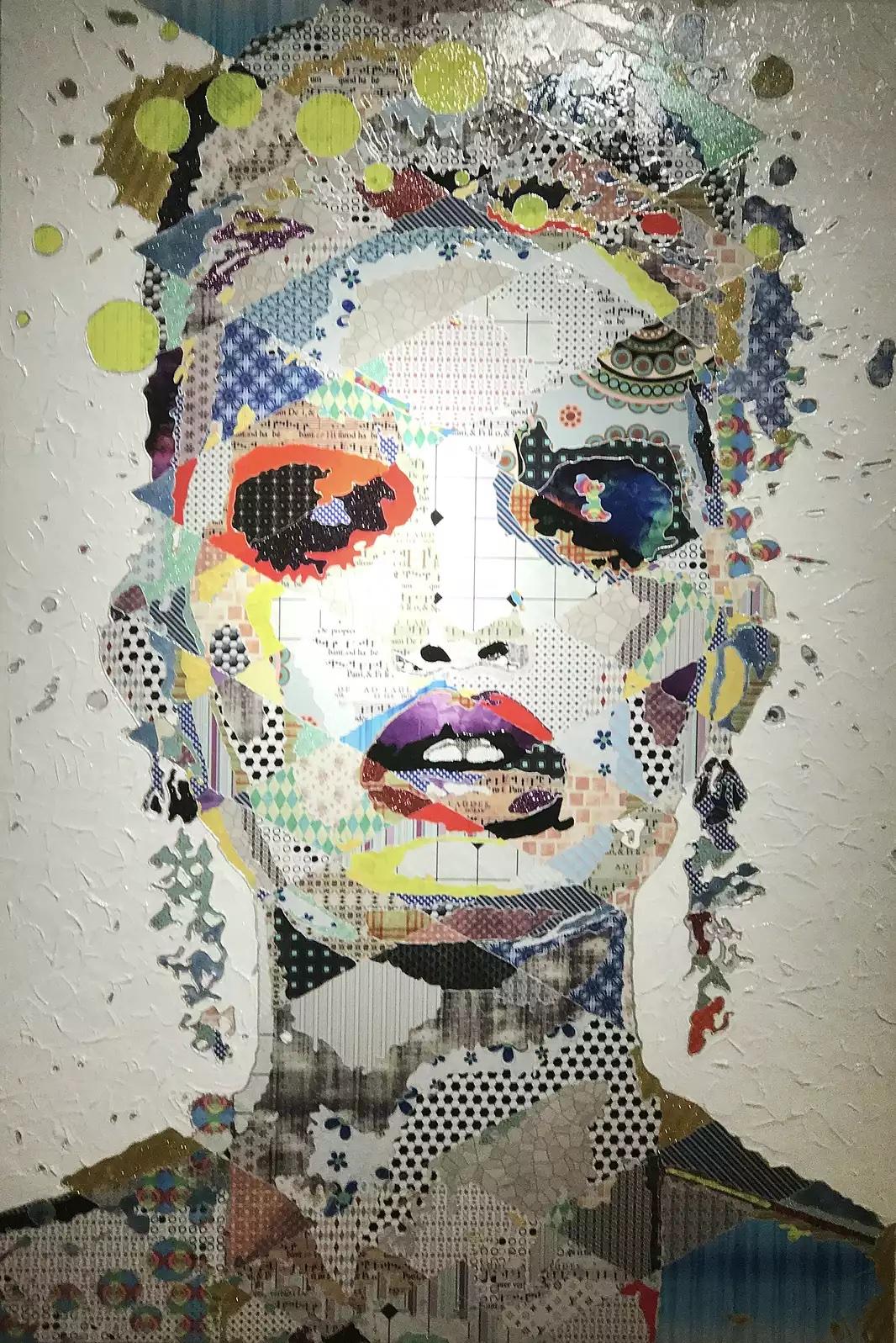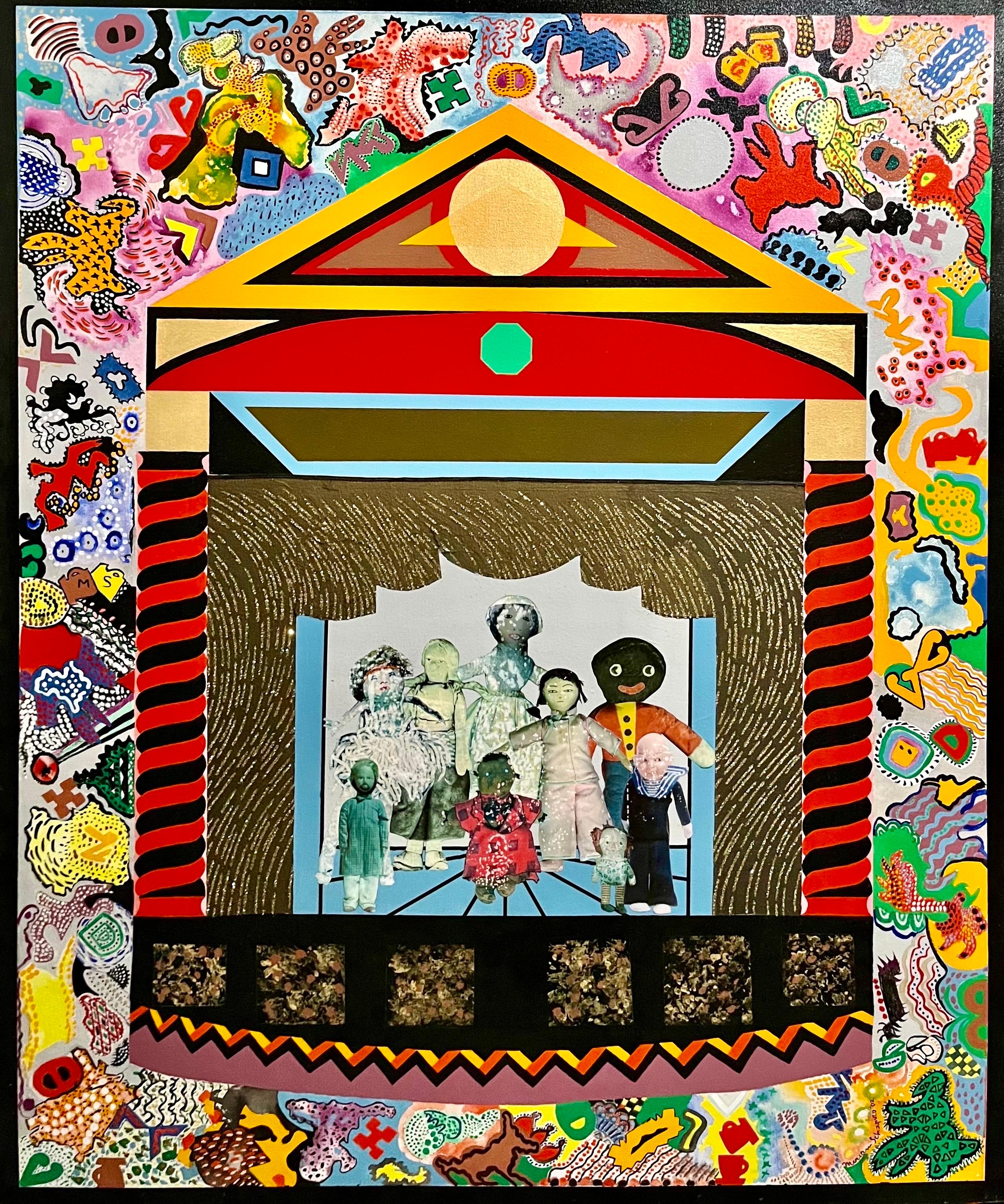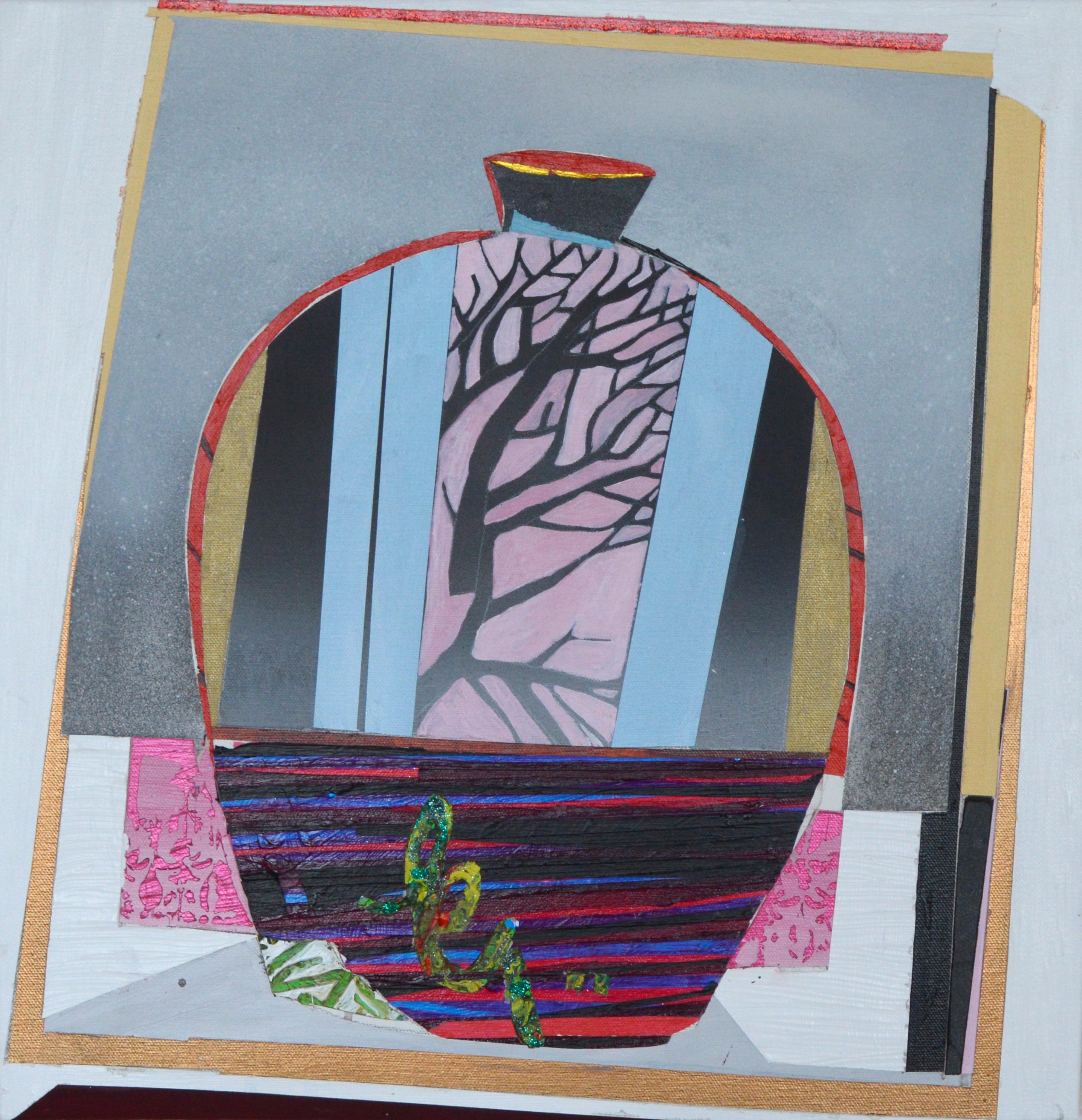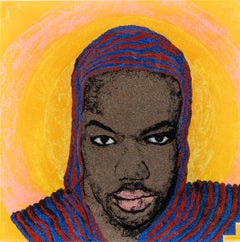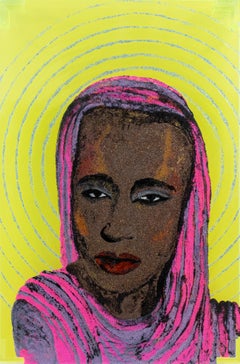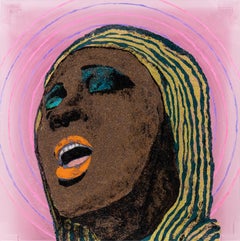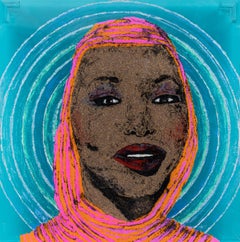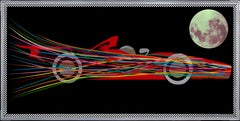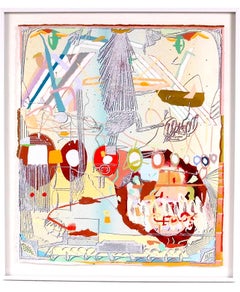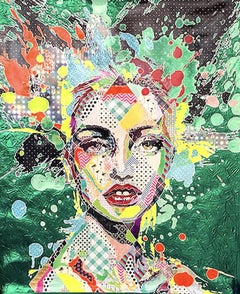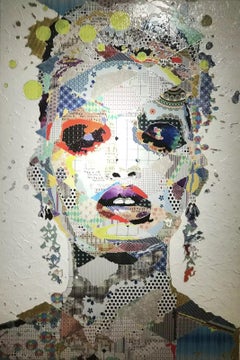Items Similar to Crystal LaBeija
Want more images or videos?
Request additional images or videos from the seller
1 of 5
Richard AlvarezCrystal LaBeija2022
2022
About the Item
Crystal LaBeija
2022
Signed
Binder and glitter on acrylic
28.5 x 26.5 inches (72.4 x 67.3 cm)
Crystal LaBeija (1930s-1990s) was the founder of the legendary House of LaBeija. She started the house in 1977, and has been cited as the originator of the term “House” when marketing the first annual “House of LaBeija Ball.”
This work is offered by ClampArt in New York
City.
- Creator:Richard Alvarez
- Creation Year:2022
- Dimensions:Height: 28.5 in (72.39 cm)Width: 26.5 in (67.31 cm)
- Medium:
- Movement & Style:
- Period:
- Condition:
- Gallery Location:New York, NY
- Reference Number:1stDibs: LU932310125592
About the Seller
5.0
Platinum Seller
Premium sellers with a 4.7+ rating and 24-hour response times
Established in 2000
1stDibs seller since 2018
263 sales on 1stDibs
Typical response time: 2 hours
- ShippingRetrieving quote...Shipping from: New York, NY
- Return Policy
Authenticity Guarantee
In the unlikely event there’s an issue with an item’s authenticity, contact us within 1 year for a full refund. DetailsMoney-Back Guarantee
If your item is not as described, is damaged in transit, or does not arrive, contact us within 7 days for a full refund. Details24-Hour Cancellation
You have a 24-hour grace period in which to reconsider your purchase, with no questions asked.Vetted Professional Sellers
Our world-class sellers must adhere to strict standards for service and quality, maintaining the integrity of our listings.Price-Match Guarantee
If you find that a seller listed the same item for a lower price elsewhere, we’ll match it.Trusted Global Delivery
Our best-in-class carrier network provides specialized shipping options worldwide, including custom delivery.More From This Seller
View AllJuan Dubose
Located in New York, NY
Juan Dubose
2022
Signed
Binder and glitter on acrylic
30 x 30 inches (73.2 x 76.2 cm)
DJ Juan Dubose was a friend and lover of Keith Haring, as documen...
Category
2010s Contemporary Paintings
Materials
Plastic, Adhesive, Glitter
Angelo Colon
Located in New York, NY
Angelo Colon
2022
Signed
Binder and glitter on acrylic
36 x 24 inches (91.4 x 61 cm)
Angelo Colon was an actor and model known for his collaborations with Grace Jones. Angelo was...
Category
2010s Contemporary Paintings
Materials
Plastic, Adhesive, Glitter
Sylvester
Located in New York, NY
Sylvester
2022
Signed
Binder and glitter on acrylic
30 x 30 inches (73.2 x 76.2 cm)
Sylvester was an American disco icon, known for his flamboyant and androgynous persona. Sylvester was a member of the Cockettes...
Category
2010s Contemporary Paintings
Materials
Plastic, Adhesive, Glitter
Portia LaBeija
Located in New York, NY
Portia LaBeija
2022
Signed
Binder and glitter on acrylic
30 x 30 inches (73.2 x 76.2 cm)
Portia LaBeija was a prominent and beloved member of the House of LaBeija. She passed awa...
Category
2010s Contemporary Paintings
Materials
Plastic, Adhesive, Glitter
Marsha P. Johnson
Located in New York, NY
Marsha P. Johnson
2022
Signed
Binder and glitter on acrylic
30 x 30 inches (73.2 x 76.2 cm)
Marsha P. Johnson (1945-1992) was a gay liberation activ...
Category
2010s Contemporary Paintings
Materials
Plastic, Adhesive, Glitter
Birdman
By Jerome Caja
Located in New York, NY
Mixed media with glitter on paper in artist's gold leaf frame
4.25 x 3.25 inches, paper size
12.5 x 8.75 x 1.75 inches, framed
NFS.
Category
1980s Other Art Style More Art
Materials
Gold Leaf
Price Upon Request
You May Also Like
Colorful and Supersonic Formula 1000 (Original Mixed Media Artwork)
By Mauro Oliveira
Located in LOS ANGELES, CA
*New Year Inventory Renewal Sale - 90 Days Until April 30th*
*This Price Won't Be Repeated Again This Year*
***Looking for one of kind precious high ending gift that no one ...
Category
21st Century and Contemporary Contemporary Mixed Media
Materials
Resin, Plastic, Tape, Glitter, Acrylic, Wood Panel
$2,250 Sale Price
73% Off
Mixed Media Painting SIlkscreen, Glitter Metal Flake, Acrylic Paint Darren Goins
Located in Surfside, FL
Darren Goins, (American, b. 1993)
Acrylic paint and metal flake glitter with silkscreen on paper
Not signed on front. (presumably signed verso but has not been examined out of frame)
Overall: 30-1/4"h x 26-1/4"w
Paper Size: 26-1/2"h x 22-1/2"w
Darren Goins (American Post War and Contemporary art) was born in 1984 in North Carolina but now resides in Los Angeles, California. Goins is well known for his unique style and aesthetic, which involves the combination of digital technologies and traditional painting methods to create abstract paintings. Working with a wide range of media–printmaking, painting, drawing, sculpture, neon–Goins’ art manages to capture the anxiety of the digital Information Age in both color and form. Creating imagery with both computer software and the paintbrush, Darren Goins’ paintings utilize both traditional methods of abstraction as well as digital intervention.Goins graduated from UNC Charlotte with a BFA in Photography and Printmaking and a minor in Art History. Goins soon moved to New York, and later Los Angeles where he currently lives and works.
Goins’ style utilizes computer software, like Adobe Photoshop or Microsoft Paint, in order to etch the image onto an acrylic panel using a CNC carver. He then paints over the surface, which in turn becomes the backside of the painting as the reverse side of the clear panel faces the viewer. Goins in this manner appears to be tricking the eyes of the viewers with his work; portraying the pieces as a base relief in reverse as if the painting is somehow bubbling up from behind the acrylic panel.
Goins’ pieces also confront the audience with how one can engage with, and utilizes, technology in art. Through his embrace of technical chance and his flexible, manual process, something organic peeks through from, within these images. In Goins’ paintings we can see the ghost of humanity filtered through digital media, fluidly weaved in space. Using his camera phone, digital prints, silver gelatin prints and screen-print drawings from his computer, Microsoft Paint or Photoshop. He has been exhibited internationally, Goins has had solo exhibitions at Hezi Cohen Gallery in Tel Aviv, Israel, Whitcher Projects in Los Angeles, Martin Lawrence Galleries, La Jolla, California and Hap Gallery in Portland, Oregon among others. Goins has participated as an artist-in-residence at Socrates Sculpture...
Category
21st Century and Contemporary Contemporary Abstract Paintings
Materials
Glitter, Acrylic, Screen
Luma
By Alea Pinar Du Pre
Located in New York, NY
Alea Pınar du Pre was born in Vienna, where she grew up under the intense influence of the artistic legacy left by the Vienna Secession and the Wiener Werkstatte. Du Pre studied mark...
Category
2010s Contemporary Mixed Media
Materials
Fabric, Canvas, Glitter, Acrylic, Mixed Media
Price Upon Request
Daphne
By Alea Pinar Du Pre
Located in New York, NY
Alea Pınar du Pre was born in Vienna, where she grew up under the intense influence of the artistic legacy left by the Vienna Secession and the Wiener Werkstatte. Du Pre studied mark...
Category
2010s Contemporary Portrait Paintings
Materials
Fabric, Canvas, Glitter, Acrylic, Mixed Media
Price Upon Request
Large Mixed Media Collage Painting Great Jewish Feminist Artist Miriam Schapiro
By Miriam Schapiro
Located in Surfside, FL
Miriam Schapiro,
"Curtain Call"
2002
Hand signed, dated and titled verso and signed and dated recto.
acrylic paint, digital images, glitter and textile fabric on canvas, tooling with gold leaf embossing around self edge of painting.
size: 60 x 50 in
Miriam Schapiro (or Mimi Schapiro) (November 15, 1923 – June 20, 2015) was a Canadian-born artist based in America. She was a painter, sculptor and printmaker. She was a pioneer of feminist art. She was also considered a leader of the Pattern and Decoration art movement. Schapiro's artwork blurs the line between fine art and craft. Her paintings contain craft elements because crafts and decoration is associated with women and femininity. She used icons that are associated with women such as hearts, floral decorations, geometric patterns and the color pink. In the 1970s she made a small woman's object, the fan, heroic by painting it six feet by twelve feet. This bears the influence of the Pattern and Decoration movement artists such as Brad Davis, Mary Grigoriadis, Joyce Kozloff, Robert Kushner, Kim MacConnel, Sonya Rapoport, Miriam Schapiro and Valerie Jaudon. Shapiro was born in Toronto, Ontario, Canada. Her father was an industrial design artist who fostered her desire to be an artist and served as her role model and mentor. Her mother was a stay at home mother who worked part-time during the depression.
As a teenager, Schapiro was taught by Victor d’Amico, her first modernist teacher at the Museum of Modern Art. In the evenings she joined WPA classes for adults to study drawing from the nude model. In 1943, Schapiro entered Hunter College in New York City, but eventually transferred to the University of Iowa. At the University of Iowa, Schapiro studied painting with Stuart Edie and James Lechay. She studied printmaking under Mauricio Lasansky and was his personal assistant, which then led her to help form the Iowa Print Group. Lasanky taught his students to use several different printing techniques in their work and to study the masters' work in order to find solutions to technical problems.
At the State University of Iowa she met the artist Paul Brach, whom she married in 1946.. By 1951 they moved to New York City and befriended many of the Abstract expressionist artists of the New York School, including Joan Mitchell, Larry Rivers, Knox Martin and Michael Goldberg.
Schapiro worked in the style of Abstract expressionism during this time period. Shapiro and Brach lived in New York City during the 1950s and 1960s. During this period Shapiro had a successful career as an abstract expressionist painter in the hard-edge style. In December 1957, André Emmerich selected one of her paintings for the opening of his gallery. Schapiro not only honored the craft tradition in women's art, but also paid homage to women artists of the past. In the early 1970s she made paintings and collages which included photo reproductions of Mary Cassatt's and Georgia O'keefe's paintings. Early in her career, Schapiro started looking for maternal symbols to unify her own roles as a woman. Her series, Shrines (1963), was her first artistically successful attempt at compartmentalizing her life roles. Her painting, Big Ox No. 1, from 1968, references Shrines, however no longer compartmentalized. The center O takes on the symbol of the egg which exists as the window into the maternal structure with outstretched limbs. Her series, Shrines was created in 1961–63. It is one of her earliest group of work that was also an autobiography. Each section of the work show an aspect of being a woman artist. They are also symbolic of her body and soul.
In 1964 Schapiro and her husband Paul both worked at the Tamarind Lithography Workshop. One of Schapiro's biggest turning points in her art career was working at the workshop and experimenting with Josef Albers' Color-Aid paper, where she began making several new shrines and created her first collages.
In the 1970s, Schapiro and Brach moved to California so that both could teach in the art department at the University of California. Subsequently, she was able to establish the Feminist Art Program at the California Institute of the Arts, in Valencia with Judy Chicago. The program set out to address the problems in the arts from an institutional position. They wanted the creation of art to be less of a private, introspective adventure and more of a public process through consciousness raising sessions, personal confessions and technical training. She participated in the Womanhouse exhibition in 1972. Schapiro's smaller piece within Womanhouse, called "Dollhouse", was constructed using various scrap pieces to create all the furniture and accessories in the house. Each room signified a particular role a woman plays in society and depicted the conflicts between them. Along with Nancy Spero, Joan Snyder, Joyce Kozloff, Audrey Flack and Judy Chicago, she is from that first generation of Jewish American feminist women artists and includes Judaica in her work.
Schapiro's work from the 1970s onwards consists primarily of collages assembled from fabrics, which she called "femmages". As Schapiro traveled the United States giving lectures, she would ask the women she met for a souvenir. These souvenirs would be used in her collage like paintings. Her 1977-1978 essay Waste Not Want Not: An Inquiry into What Women Saved and Assembled - FEMMAGE (written with Melissa Meyer) describes femmage as the activities of collage, assemblage, découpage and photomontage practised by women using "traditional women's techniques - sewing, piercing, hooking, cutting, appliquéing, cooking and the like..."
She was involved in Abstract expressionism, Minimalism, Computer art, and Feminist art. She worked with collage, printmaking, painting, femmage [fr] – using women's craft in her artwork, and sculpture. Schapiro not only honored the craft tradition in women's art, but also paid homage to women artists of the past. In the early 1970s she made paintings and collages which included photo reproductions of past artists such as Mary Cassatt. In the mid 1980s she painted portraits of Frida Kahlo on top of her old self-portrait paintings. In the 1990s Schapiro began to include women of the Russian Avant Garde in her work. The Russian Avant Garde was an important moment in Modern Art history for Schapiro to reflect on because women were seen as equals.
Schapiro also did collaborative art projects, like her series of etchings Anonymous was a Woman from 1977. She was able to produce the series with a group of nine women studio-art graduates from the University of Oregon. Each print is an impression made from an untransformed doily that was placed in soft ground on a zinc plate, then etched and printed.
Her image is included in the iconic 1972 poster Some Living American Women Artists by Mary Beth Edelson...
Category
Early 2000s Contemporary Mixed Media
Materials
Glitter, Mixed Media, Fabric, Acrylic, Digital
Miscalibration: pink abundance
By Jenny Day
Located in New Orleans, LA
materials: acrylic, spray paint, airbrush, flashe, colored pencil, paint pen, glitter on canvas
---
JENNY DAY is a painter who lives in Santa Fe, New Mexico. She earned an MFA in P...
Category
21st Century and Contemporary Contemporary Mixed Media
Materials
Canvas, Paint, Glitter, Spray Paint, Acrylic, Color Pencil
Recently Viewed
View AllMore Ways To Browse
Italian Figurative Oil Painting
Los Angeles Pop Art
Early California Paintings
Paintings From The 1940s
1960s Painting Canvas
Russia Oil Painting
Russia Oil Paintings
Russian Oil Paintings
Art Painting Ukraine
Hidden Art Paintings
1922 Painting
Landscape Painting With Animals
Blue And White Original Paintings
Vertical Abstract
Figurative Sketch
Framed Western Art
Korea Artist
Korean Artists
